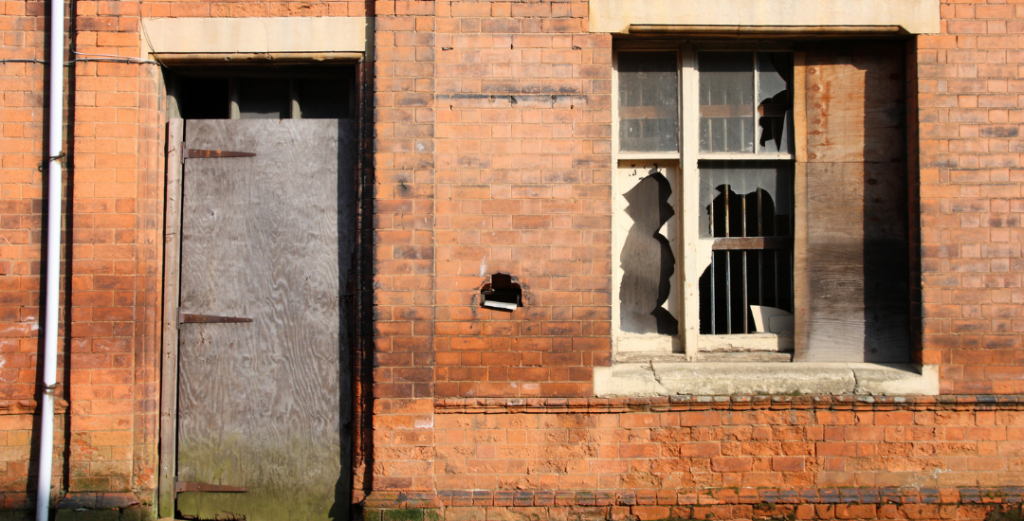A squatter is a person who settles in or occupies a property with no legal claim to the premises. However, there is a difference between Residential and Commercial Squatters.
The question of can a tenant become a squatter is one asked by many landlords. Here we will explore this possibility and the legal proceedings of how to handle any squatters.
Types of squatters
There is no single definition for what a squatter is as these individuals can arise in a few different ways. The typical definition for a squatter is a person unlawfully occupying an uninhabited building or unused land. But a squatter may be:
- Someone who trespasses on and occupies an empty property.
- In the case of a residential property if a person takes up occupation in a residential property without consent of the Landlord, then this is an offence under section 144 of the Legal Aid, Sentencing and Punishment of Offenders Act 2012.
However, a tenant of a property who has failed to pay rent, is not classed as a squatter but a stay over. Therefore, will be classed as a squatter in nearly all cases you will need to obtain a Court Order to complete an eviction
If there is a tenant of a property who was issued with a notice to leave but has continued to stay, these again are classed as a stay over, a Court Order will be required.
If you have a Commercial Property, then in most cases a Court order will be needed. If, however, entry to the property can be gained without using force it is possible to complete an eviction under common law.
Trespassing vs Squatting
One thing that’s important to know when dealing with squatters is the difference between squatters and trespassers. Both offences are similar, in the fact that both crimes mean they are illegally inside a private or rental property that they do not have permission to be in, but the main difference is longevity.
A trespasser will usually have a short-term motive, where the individuals are not trying to stay there. Whereas squatters are usually will have the aim to reside in the property long term possible without any legal right to.
Police can, however, take legal enforcement on squatters if they are committing another crime, these could include:
- Fly-tipping
- Using utilities without permission, Theft of Electricity Act 1968.
- Stealing from the property
- Not following a noise complaint notice
- Refusing to leave the property if asked to do so by the police, the council, or the owner.
- If there is a repossession order
Can a Tenant Claim Squatter’s rights?
It is important to know the legalities for squatters before attempting to remove them. Squatters rights state that squatters can stay at a property until they are formally evicted. If squatters are not correctly removed, then legal action can be taken.
Whether a person is in a building or on land, often people refer to Squatter Rights. However, in truth there is no such thing as the rights of a squatter or trespassers. What is referred to as Squatter Rights is the Protection from Eviction Act 1977, whilst this was brought in for Residential property, case law has extended it to Commercial Property, that if a person is residing in a property, one cannot use force to enter the property, whether that be against the person or the building.
Removing Squatters/Trespassers
Evicting a squatter is often a complex and challenging scenario. However, it is vital to know the correct procedures when doing so. Using force or threatening the squatters yourself is illegal and will be taken as a criminal offence.
It is important to note that the removal of squatters and the correct process can be different depending on where you are located and specific to your case. It is always best to check your local laws before proceeding with action.
- Call the police. If the authorities are contacted, they can help determine how to handle the situation at hand.,
- Notice. If not already done, the first step to removing a tenant who is in default with the rent or causing anti-social behaviour is to file a notice for eviction and send this to the squatters. In most cases, when provided with an eviction notice, the individuals that are squatting realise the seriousness of their illegal occupancy and will leave the property.
- File a lawsuit. After being served a notice, if the squatter does not leave, a civil lawsuit can be filed.
- Enforcement agency. Speaking to an enforcement agency will give you an expert opinion on how to correctly handle your squatting situation.
What you can’t do
When evicting squatters, it is vital to have the knowledge on what not to do, to ensure there are no problems in the future.
Don’t remove the squatter yourself
Never remove the squatters yourself. Doing so may be a violation of their rights; this creates a risk of large fines and jail time.
Don’t change the locks
Changing the locks or turning off utilities is never a good idea. Doing so gives the squatter an upper hand in their case.
Don’t make threats
Finally, making any threats or using physical or verbal violence will also further jeopardise your case.
Preventing squatters
Unfortunately, squatting is not something you can always foresee happening. However, having good tenants from the start is a great way to help prevent this issue.
Selecting a good tenant can be a confusing task if you don’t know what to look out for, here you will understand everything you need to know to get the best tenant.
Need professional help?
Here at Able Investigations, we know the struggle of dealing with squatters and have our trained team of experts ready to help you correctly remove your unwanted guest. Get in contact today!



Comments are closed.